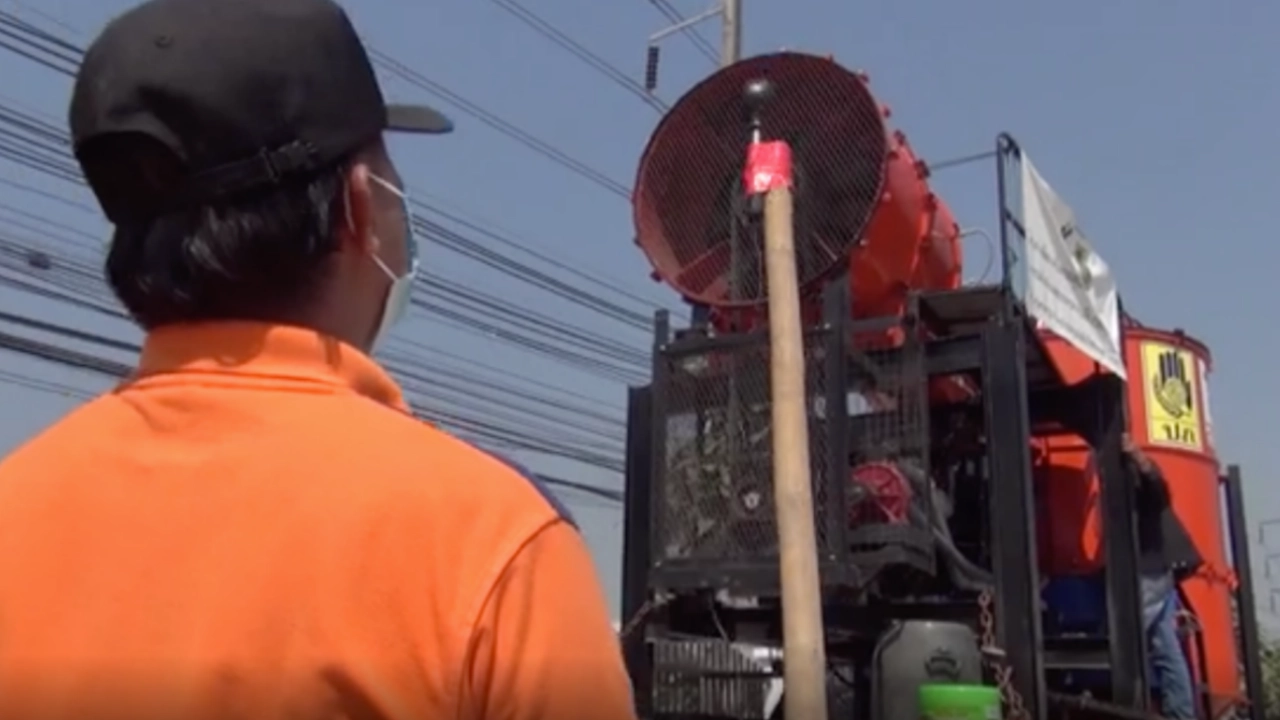Chiang Mai tackles PM2.5 pollution with giant vacuum cleaner

Thailand‘s Disaster Department is testing out a giant vacuum cleaner as a way to tackle the PM2.5 dust pollution problem that plagues the northern city of Chiang Mai every ‘burning season.’
Every year, farmers around Thailand send their forests and fields up in smoke because it’s the cheapest way to prepare to plant new crops causing PM2.5 levels to shoot upward. The problem is exacerbated by the lack of rain at this time of year.
Chiang Mai is especially affected because of the sheer volume of agricultural fires in northern Thailand sending dust floating into the city, which lies in a valley.
Today, the Department of Disaster Prevention and Mitigation brought the prototype of a giant vacuum cleaner to the Chiang Mai Civic Centre to test out sucking PM2.5 dust from the air.
The prototype was designed in collaboration with Thailand Science Research and Innovation to remove tiny particulates or droplets in the air that are two and one-half microns or less in width – or about 30 times smaller than the width of a strand of human hair.
The machine’s operator Montree Trichoho said the vacuum uses a 3,000cc engine to drive a large fan to suck dust from the air into the machine. Then, water is sprayed on the tiny dust particles to turn them into the sediment.
It is a smokeless machine, added Montree.
Meanwhile, Chiang Mai Governor Nirat Pongsitthaworn ordered helicopters to locate forest fires in rural areas and extinguish them from above, such as the fires high up in the mountains in Hot district.
The Chiang Mai Provincial Public Health Office and local authorities are preparing to open “dust-free rooms” in all 25 districts in the case PM2.5 reaches hazardous levels.
Last week, Bangkok was measured as the third most polluted city in the world for a short while due to “unhealthy” PM2.5 levels.
PM2.5 dust particles are so small that they can penetrate deep into the respiratory tract and into the lungs. Short-term health impacts include irritated eyes, nose, throat, and lungs, coughing, sneezing, runny nose, and shortness of breath.
Exposure to PM2.5 can affect lung function and worsen asthma and heart disease. Studies have linked PM2.5 exposure to increased cardiovascular hospital admissions, emergency department visits, and deaths.
Latest Thailand News
Follow The Thaiger on Google News:



























